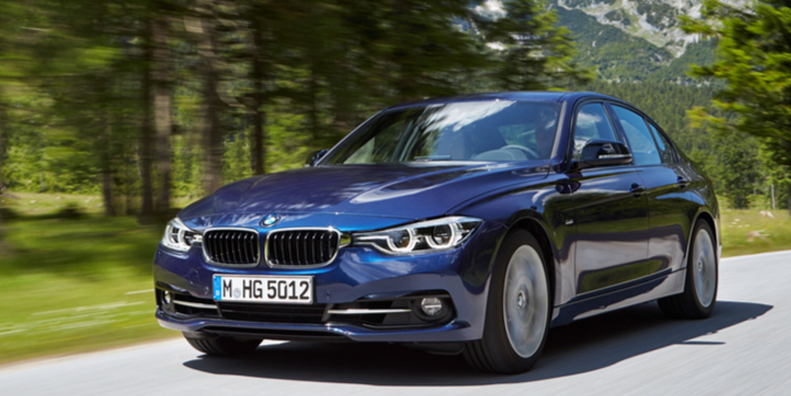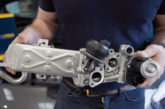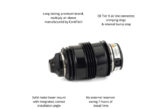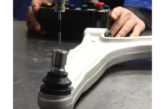AutoMate’s Harrison Boudakin looks at the implications of a ‘Hard Brexit’ on the future of the European automotive and aftermarket industry.
Britain’s booming automotive sector will now enter a period of profound and damaging uncertainty, forcing car manufacturers and suppliers to reconsider the viability of their investments in the UK. Thanks to Prime Minister May’s decision to initiate a ‘hard Brexit,’ that is now the only conclusion we can reach when considering what will happen to one of Great Britain’s most lucrative industries when they eventually cut ties with the EU.
In a forthright speech, Prime Minister May indicated that she would be willing to initiate the ‘hardest’ Brexit scenario imaginable if the European Parliament or the British House of Commons try to force Britain to accept a “bad Brexit deal.” That is to say, it is now obvious that Ms. May is absolutely intent on pushing through a full British Exit from the EU and its Single Market free-trade zone, regardless of whether her government can negotiate a deal that will secure Britain’s future as an importer and exporter of cars to and from the Continent.
This strategy has major implications for Britain’s thriving car manufacturing industry, which owes much of its strength to the free movement of goods to and from Continental Europe currently allowed by the Single Market. At the same time, it will also severely impact a broad swathe of European car manufacturers and suppliers, who presently export a large proportion of their products to Britain.

The process of manufacturing cars like the BMW 3 Series will be affected by a hard Brexit. Though the car is built in Germany, its engine is assembled in Britain, and the car is a best-seller in the UK market, meaning BMW relies heavily on EU free-trade to build and sell this car.
Brexit is an extraordinarily complex political puzzle, and therefore the fate of European automotive trade is but one section of a much larger and detailed picture. In that sense, it is important to remember just how heavily the issue of European Migration continues to weigh on Exit discussions, and to that end we must note that Ms. May has now made it perfectly clear that she will not compromise her desire to abolish the policy of free immigration between Britain and Europe.
Unfortunately, it is unlikely at this stage that the EU member states will allow Britain to repeal one of the Union’s four pillars (free movement of citizens) while at the same time keeping another (free trade of goods and services). In fact, Angela Merkel has previously gone as far declaring that “if Germany doesn’t say full access to the single market is linked to full freedom of movement, then a revolution will spread in Europe where everyone just does whatever they want.”
Like France and Italy, Germany is concerned that if Britain gets too good a deal with Brexit and is allowed to “cherry-pick” the bits of EU membership they want, it might encourage other member states to stage their own Exit plans, putting the very existence of the Union in jeopardy.
On both sides of the English Channel, this ‘stalemate of opinion’ offers the prospect of years of uncertainty for European car manufacturers, and for the foreign companies whose factories are based in Britain. As the prominent German lobbyist, Matthias Wissmann pointed out, “The British automotive economy is deeply woven into other EU countries.” That’s true – in the last five years, car manufacturing in Britain has boomed, with more than half of the cars made in the UK exported to buyers throughout the EU.

The President of the German Automobile Association, Matthias Wissmann, is concerned that not enough is being done to reassure anxious British and European automakers, who rely on free trade between the UK and the Continent to keep their margins viable.
This is a £70 billion industry, which employs upwards of 800,000 people, and that kind of employment base is only sustained thanks to the EU free-trade agreements which have long made Britain a haven for foreign investment. Nissan, Toyota and Honda all have large factories in England, which were established in the years following Britain’s decision to join the Common Market. Now though, question marks about the economic viability of these production sites abound. Toyota – who export 75% of UK production to the EU – is openly questioning how their facilities in Burnaston and Deenside can survive a hard Brexit.
Chairman Takeshi Uchiyamada has stated that he is “considering and discussing with the government how to maintain the competitiveness” – no surprise, really, when only days earlier, it was announced that Nissan had controversially received “special assurances” from Prime Minister May that her government would give them some kind of “sweetheart” deal to keep Nissan’s enormous Sunderland plant alive.
May’s Conservative Government clearly appreciates how important it is to keep foreign manufacturers like Nissan, Toyota and Honda on British soil, but as yet they refuse to disclose what these “sweetheart” deals for the industry will consist of, should a hard Brexit mean trade tariffs are installed between the UK and the EU.

Nissan-Renault CEO Carlos Ghosn will not release details of a letter given to him by the May Government, which contained undisclosed “assurances” intended to quell any fear that the company’s future as a manufacturer in Britain was under threat.
The other side of the coin looks no better. From the perspective of a country like Germany, the consequences of a hard Brexit are bleak. As of now, roughly one in five cars produced in Germany are exported to the UK, while German firms operate around 100 sites producing cars or components in Britain. BMW alone has 8,000 employees at sites across Britain, and last year they produced more than 200,000 Minis, making up around 12% of all UK car production. In all, the UK is the second largest market for German cars outside of Germany itself.
On top of all this, we also shouldn’t forget that companies such as BMW and Mercedes are right now contending with threats from new US President Donald Trump, who plans to slap a 35% tariff on cars built in Mexican factories and then sold in the USA. The difficulty here is again the lack of knowledge – no one is quite certain just how serious Trump is about these proposals, and what incentives he will offer European automakers to manufacture in the USA.
It all boils down to a simple reality – uncertainty is awful for global business. And at this stage, the European car industry is staring a lot of uncertainty right in the face. Therein lies the true danger of the Brexit mess – if Ms. May does not act fast to ensure the healthy and continued operation of British-European automotive commerce, then there will be a seismic shift in the way that industry does business, and it is unlikely to be a good one at that. More than likely, in the event that Britain’s trade relationship status becomes unsustainable for the auto industry, then we will undoubtedly see an exodus to areas such as the former Eastern states, and possibly south to Spain and Portugal, where labour is cheap and the trade is free.
The former British-PM, Margaret Thatcher, once declared, “We will stand on principle, or we will not stand at all,” and Ms. May appears to have adopted a similar conviction. But I am afraid that her hard-line attitude could very well leave Anglo-European automotive trade on its knees.











